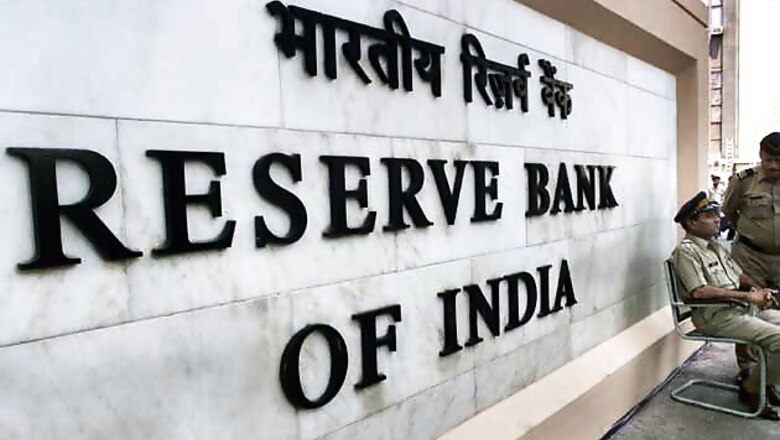
views
Mumbai: The Reserve Bank of India kept interest rates unchanged on Monday after cutting them in each of its previous three policy reviews, warning of upward risks to inflation posed by a falling rupee and increases in food prices. The RBI also called for vigilance over global economic uncertainty, citing the risks of a reversal of capital flows from emerging markets.
Such outflows, fueled by investor worries that the US Fed will soon wind down its quantitative easing, have hit the Indian currency especially hard and complicated policymaking for RBI Governor Duvvuri Subbarao.
As expected, the RBI left its policy repo rate unchanged at 7.25 per cent and kept the cash reserve ratio (CRR), or the share of deposits banks must keep with the RBI, steady at 4 per cent, despite falling inflation in recent months. "It is only a durable receding of inflation that will open up the space for monetary policy to continue to address risks to growth," the RBI said in a statement.
Markets were little affected by the policy decision. The 10-year bond yield briefly fell, while the Sensex extended losses marginally to trade down 0.4 percent. The rupee was trading largely unchanged from pre-statement levels, at around 57.80/81 per dollar. "The RBI continues to remain very hawkish. It has clearly said external sector imbalance has been weighing on its decision," said Rupa Rege Nitsure, chief economist at Bank of Baroda in Mumbai.
The rupee touched a record low of 58.98 to the dollar last week and has been among the worst performers amid a global selloff from emerging markets as investors worry about India's record-high current account deficit and were unimpressed by government efforts to boost investment.
Last week, Indonesia responded to outflows and market volatility by unexpectedly raising interest rates - the first Asian central bank to do so since 2011 - in a bid to support its currency, while Brazil said it would scrap a tax on foreign exchange derivatives as the real weakened.
The RBI left rates on hold despite headline wholesale price index inflation that fell to 4.7 per cent in May, within its comfort zone, as well as an economy that grew at just 5 per cent in the fiscal year that ended in March, its weakest in a decade. While noting that inflation had fallen, the central bank warned of looming price pressures.
"Upside pressures on the way forward from the pass-through of rupee depreciation, recent increases in administered prices and persisting imbalances, especially relating to food, pose risks of second-round effects," the RBI said.



















Comments
0 comment